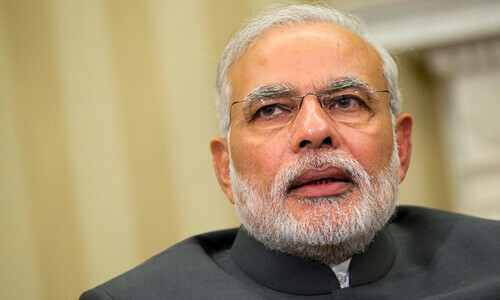AHMEDABAD: An Indian court Thursday rejected a petition to prosecute opposition prime ministerial candidate Narendra Modi over his role in 2002 religious riots that killed some 2,000 people.
A magistrate said insufficient evidence existed against Modi, who was chief minister of the western state of Gujarat at the time of the riots in which mobs went on the rampage leaving mostly Muslims dead.
The ruling is a boost to Modi, a Hindu nationalist with the Bharatiya Janata Party (BJP), who leads in opinion polls just months before the general election but still divides voters over his role in the riots.
Metropolitan Magistrate B. J. Ganatra told the court in Gujarat's main city of Ahmedabad that he accepted the findings of an 2012 official inquiry by a Special Investigation Team (SIT) that cleared Modi of wrongdoing.
“This means that the court has accepted the SIT's report,” the team's lawyer R. S. Jamuar told reporters outside the court.
“With this, there is a judicial stamp that our report has been fair,” Jamuar said, adding the magistrate's ruling was more than 300 pages long.
The widow of retired Congress party MP Ehsan Jafri, who was killed in the riots, filed a petition against the inquiry which was commissioned by the Supreme Court.
In her petition Zakia Jafri accused Modi, his ministerial colleagues, top police officials and members of the BJP of conspiracy in the riots.
Her husband was burned to death along with 68 others when a mob stormed a residential complex housing Muslim families in Ahmedabad.
The riots across Gujarat were triggered by the death of 59 Hindu pilgrims in a train fire on February 27, 2002 that was blamed on Muslims. An inquiry in 2005 concluded the train fire was accidental.
Modi, the BJP candidate for elections due by May, has been campaigning furiously to paint himself as a pro-business reformist who can revive the fortunes of the world's largest democracy.
But Modi remains toxic in the eyes of India's Muslim minority which accounts for around 13 per cent of the population but is much larger in politically vital states such as Uttar Pradesh in the north.














































